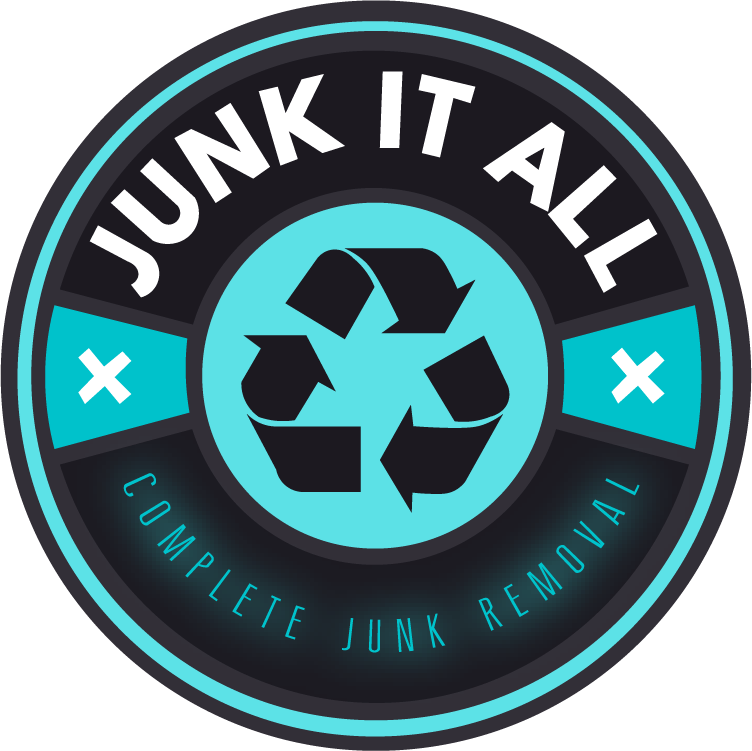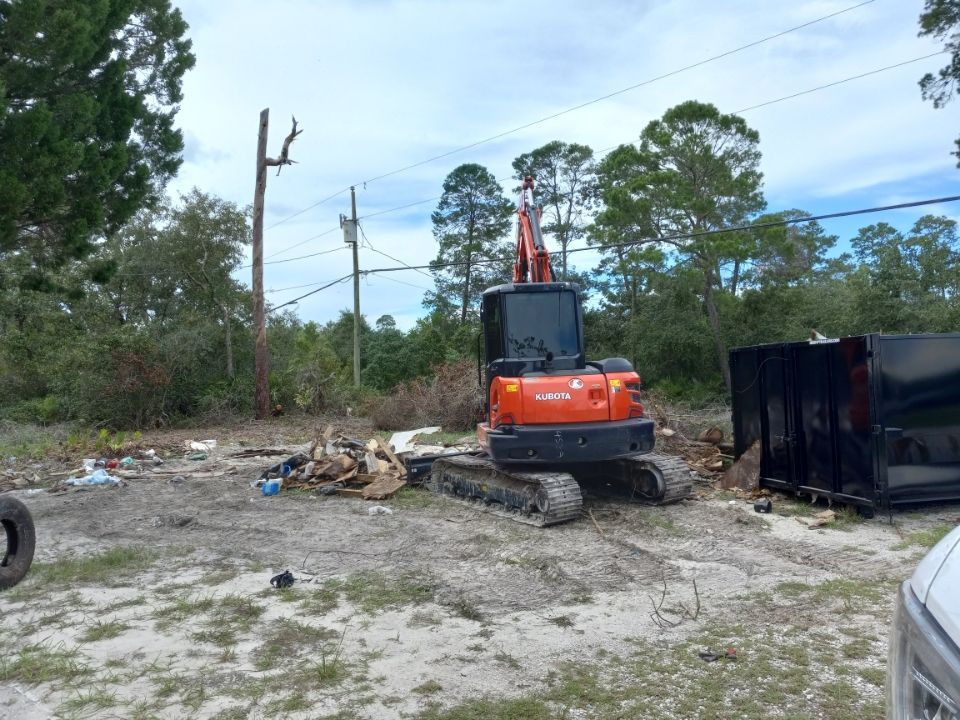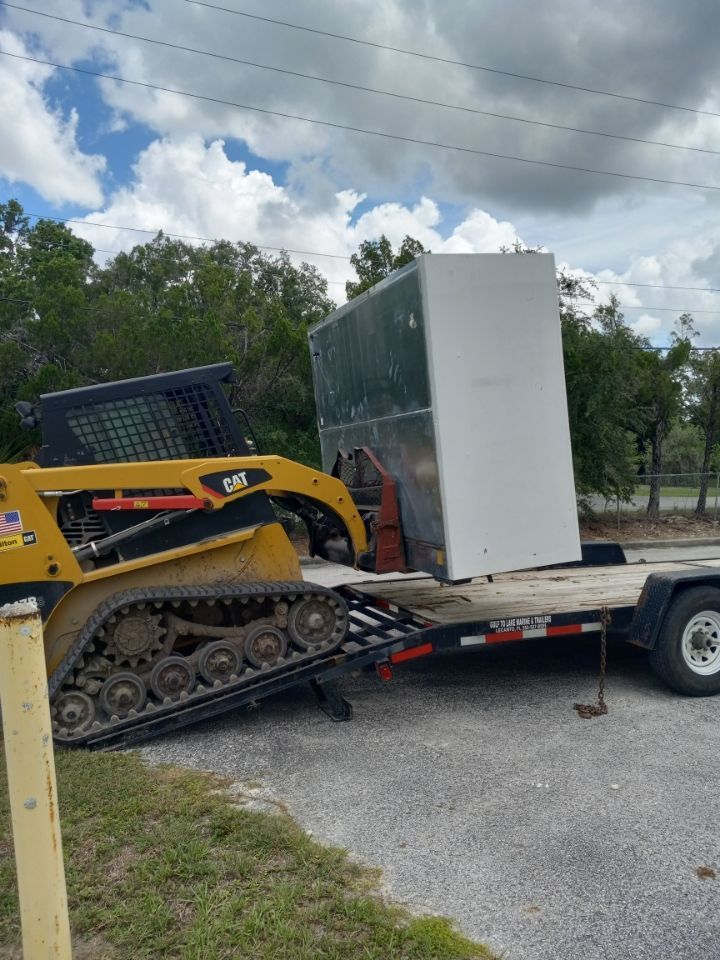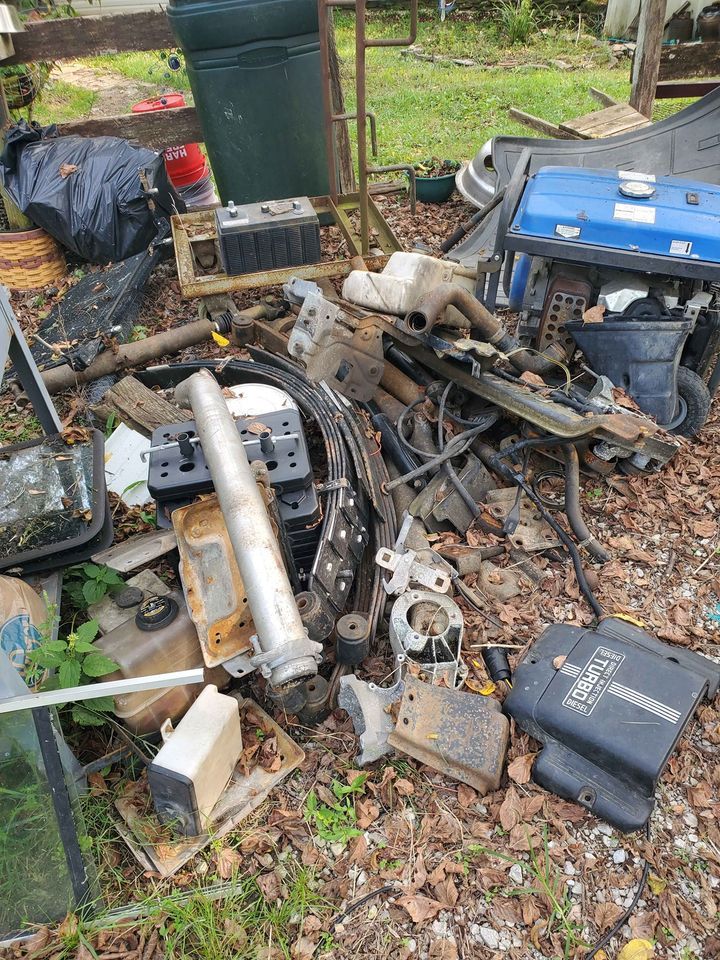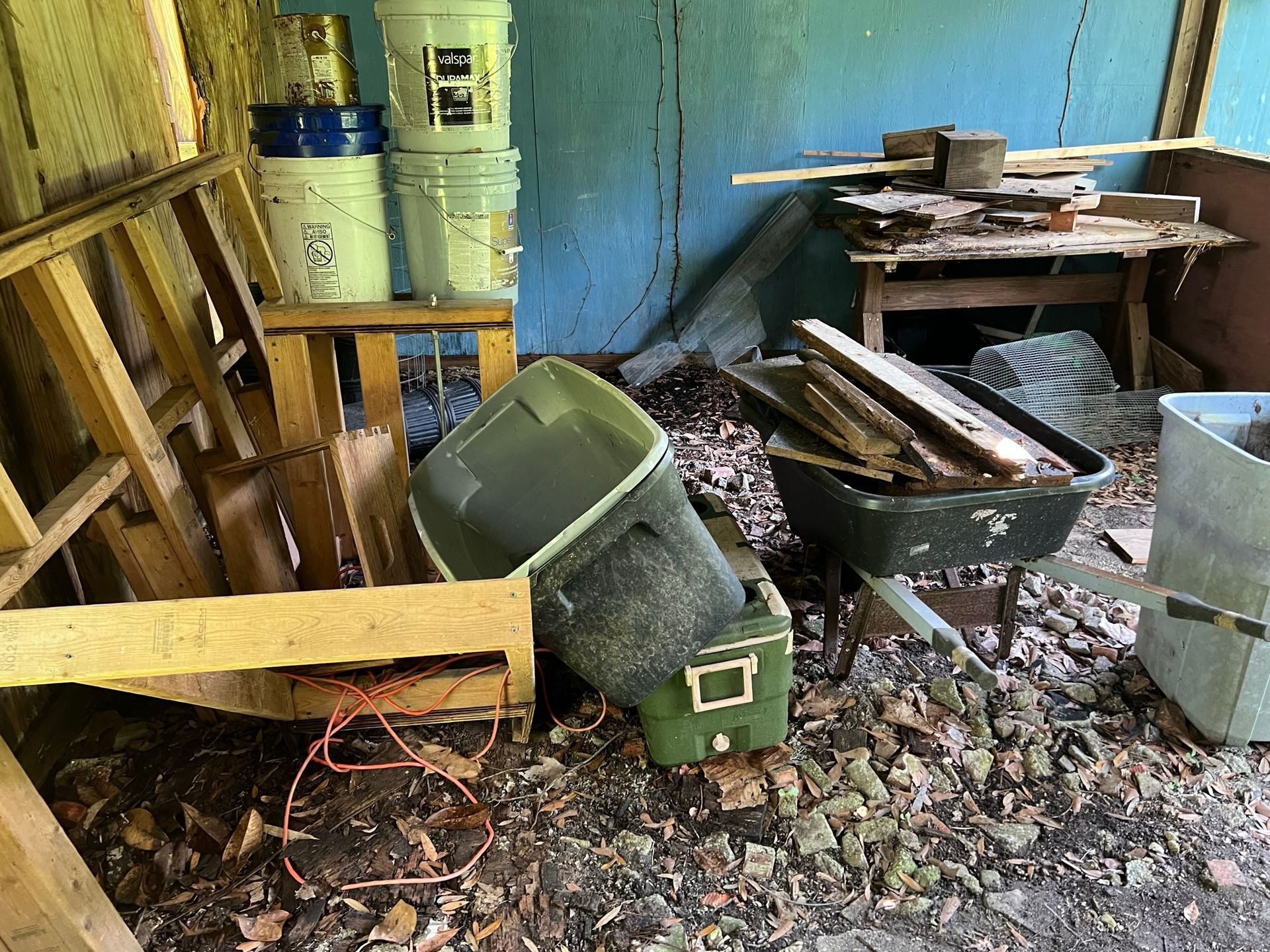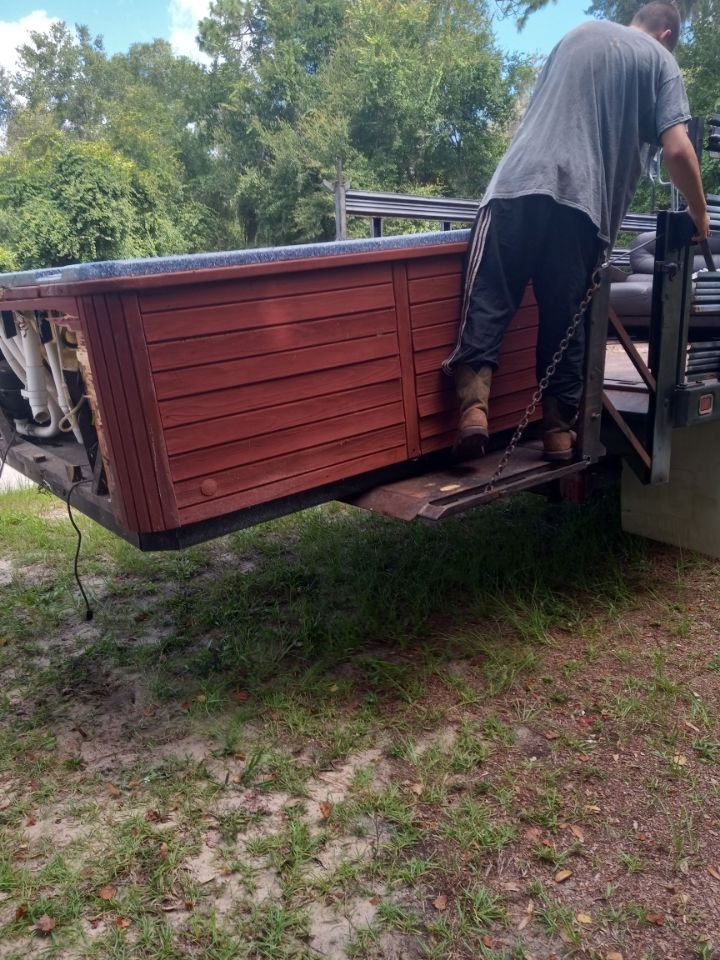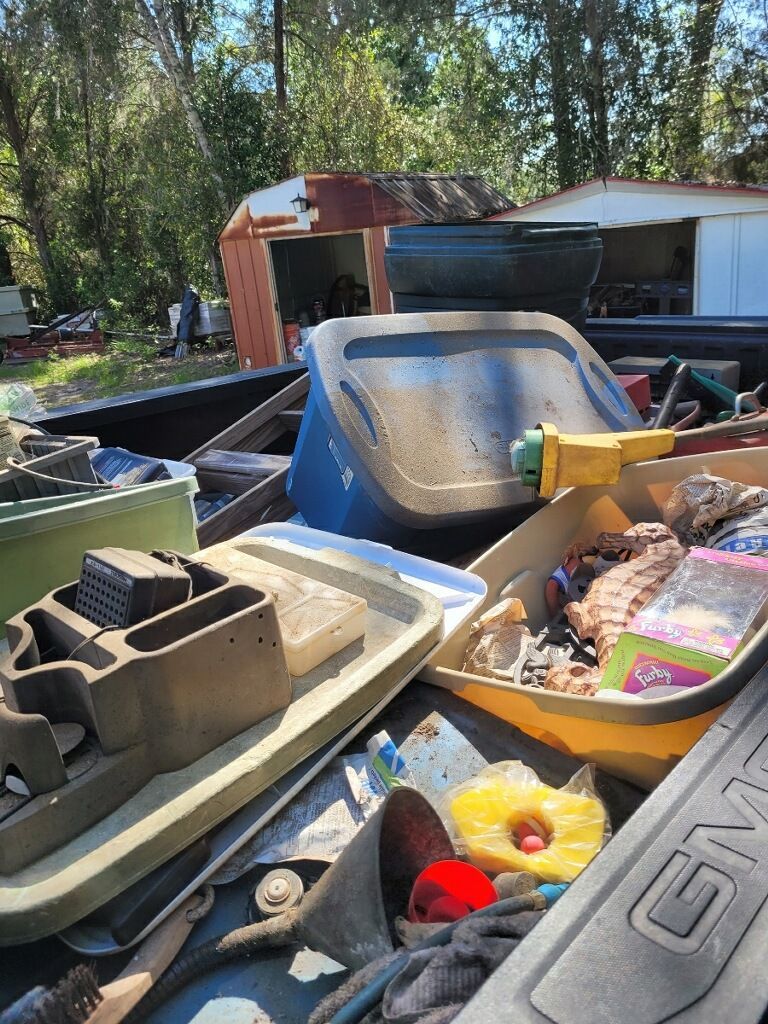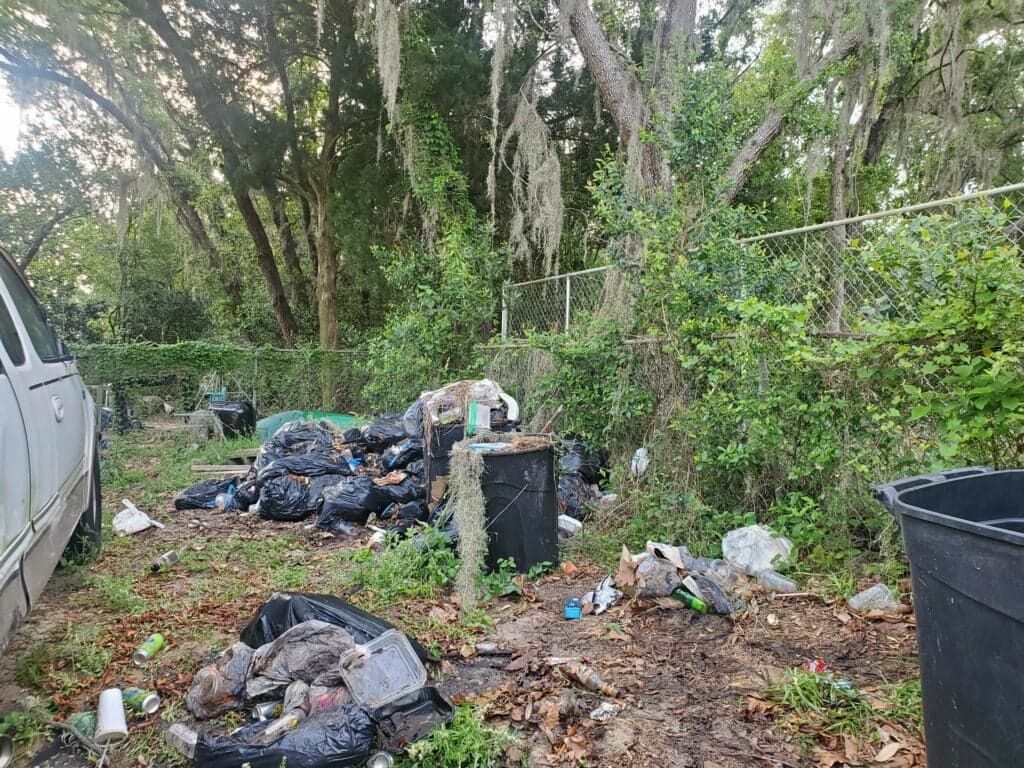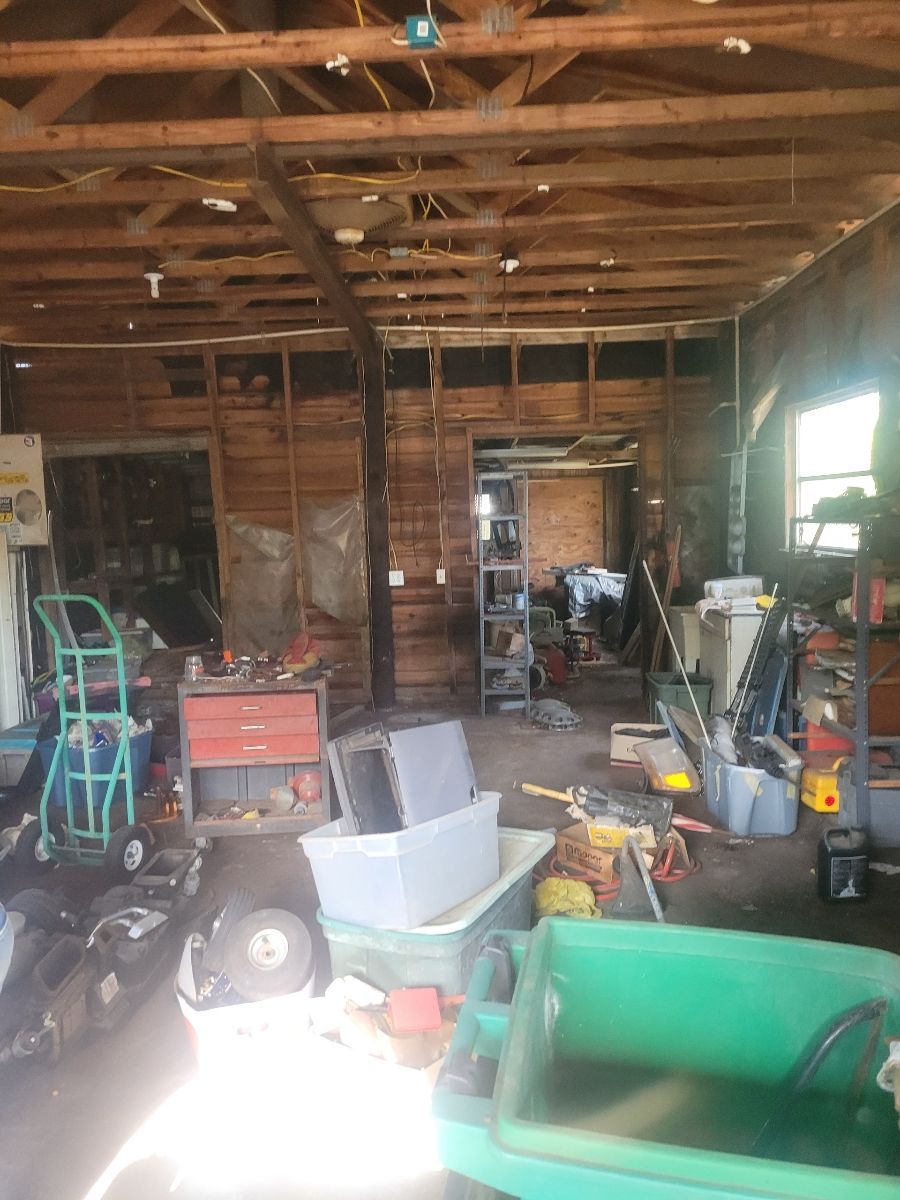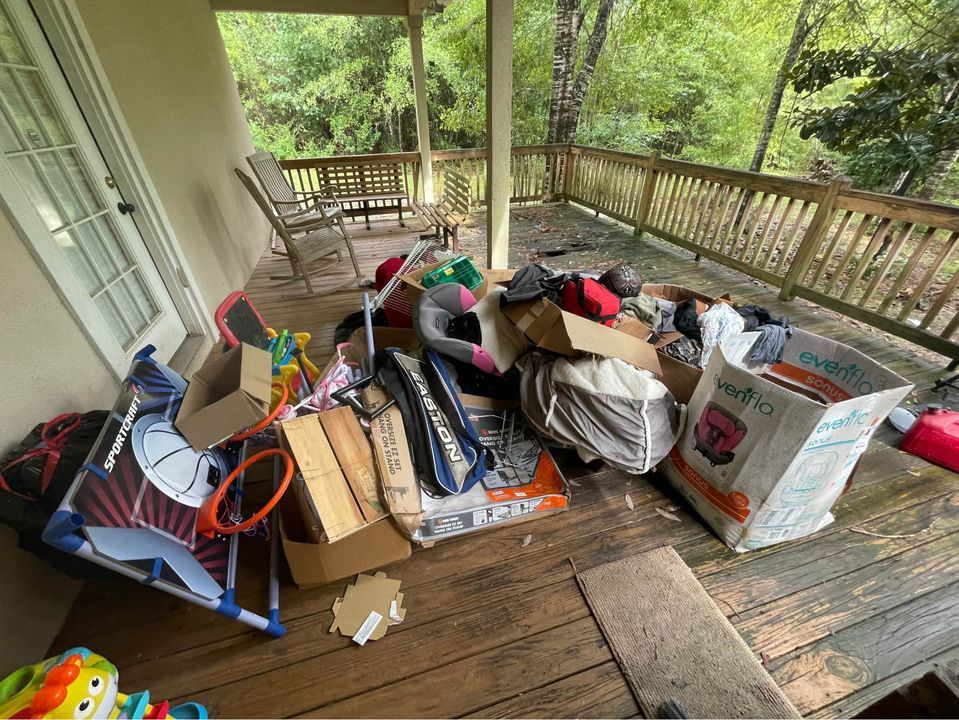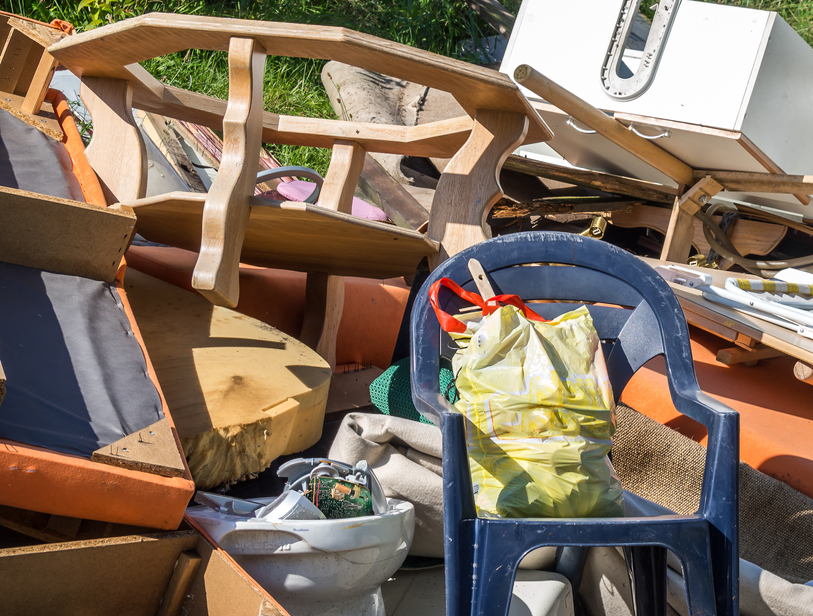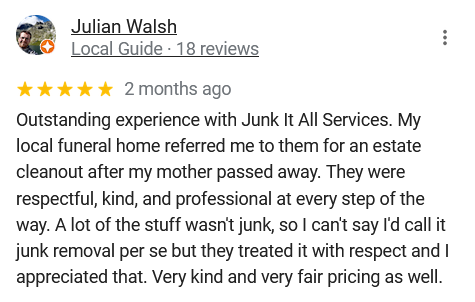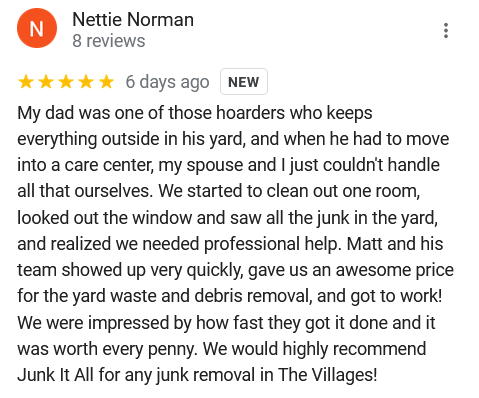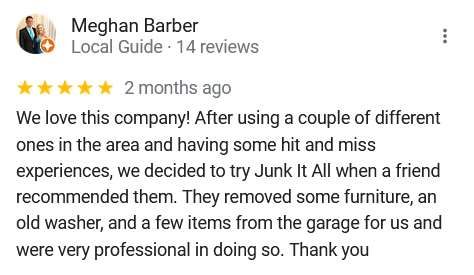How to Get Rid of Clutter Quickly: A Step-by-Step Guide to Junk Removal
To organize your junk removal process, it's essential to have a plan in place. Start by assessing the scope of the project and determining which items qualify as "junk." Once you have an idea of what needs to be removed, set aside time to sort through everything, and decide what can be donated or recycled versus what needs to be disposed of. Next, schedule a pickup with your local junk removal company. Finally, ensure that the space is thoroughly cleaned once all the junk has been removed.
Importance of Quick Clutter Removal
A cluttered home or office can have a significant impact on your physical and mental health. It's not just about aesthetics; it can also affect your productivity, focus, and overall well-being. This is why it's crucial to get rid of clutter quickly and efficiently.
Clutter makes it difficult to concentrate because it overloads your brain with unnecessary stimuli. You may not realize it, but clutter takes up valuable mental space and creates stress and anxiety. Getting rid of clutter can help you think more clearly and promote positive mental health.
In addition, clutter attracts dust, allergens, and other airborne particles that can contribute to respiratory problems. By getting rid of junk quickly, you're fostering a healthy environment that's free from these harmful toxins.
If you're still not convinced of the importance of quick junk removal, think about the practical benefits. A clutter-free workspace eliminates distractions and helps improve productivity. You'll spend less time searching for items you need, which frees up more time for important tasks.
Finally, if you're planning to sell your home or move into a new one shortly,
decluttering is vital. By doing so, you're making the property look more organized, spacious, and inviting to potential buyers.
For example, a friend of mine recently sold his home after many years spent in the same house. He attempted to declutter his space just before putting it up for sale but found it was too overwhelming. In retrospect, he regrets waiting until the last minute because potential buyers were put off by the cluttered interiors during showings.
The negative effects of clutter are well documented by numerous scientific researchers and psychologists. One study completed by
UCLA found that women who lived in homes full of clutter experienced higher levels of cortisol (the stress hormone) than those who lived in less chaotic environments. Furthermore, researchers at Princeton University concluded that when your environment is cluttered, it restricts your ability to focus.
Some people argue that clutter is a form of creativity and that artists or creative types thrive in chaos. While it may be true that some people generate great ideas while living in cluttered environments, not everyone is cut out for this lifestyle. The benefits of clarity and focus outweigh any potential benefits you can experience from clutter.
Identifying Clutter and Junk in Your Space
Before starting the junk removal process, it's essential to identify what constitutes as clutter or junk. An excellent place to begin is to look through every room of your home or office and take note of everything that hasn't been used recently or no longer serves its purpose.
For instance, if you're holding onto old clothes that no longer fit, broken appliances, outdated electronics or furniture, these items are only taking up valuable space. Donating these items to charity is one way to declutter your home while supporting a worthwhile cause.
Another sign of clutter is a stack of papers that haven't been sorted through in weeks (or even months). This problem can be solved by completing quick tasks such as recycling junk mail, shredding outdated documents, or digitizing important files so they don't take up physical space.
Another way to gauge whether something should be considered clutter is by analyzing how often you use the item. If something isn't practical or doesn't serve a specific purpose, it's time to get rid of it. Remember, the goal is to foster an organized space where things have their place and make sense.
For example, let's say you're about to tackle cleaning out your closet. You've already identified clothing pieces that no longer fit or match your style but don't know what to do with sentimental items like sports jerseys or concert t-shirts. One solution could be repurposing them into a quilt or artwork. This way, you can still have the keepsake without cluttering your closet.
According to research by California Closets, the average person spends one year of their life looking for lost items. Another study conducted in 2017 found that around 28% of Americans find complete and total organization as their most significant challenge in their lives. By identifying and removing clutter quickly, you're investing in time and stress-management efforts that will pay off in the long term.
Some people argue that the items they keep provide sentimental value or are significant investments. While it's understandable to want to hold onto these items, there comes a point where they take up unnecessary physical space and mental energy. A compromise would be repurposing the items or storing them safely elsewhere while continuing your junk removal efforts.
Sorting and Separating Items
Sorting and separating your possessions can be a daunting task. But with proper planning and organization, it can be done quickly and effectively. The key is to break down the process into manageable steps. First, start by identifying the items that you no longer need or use. This will help clear out some space and make it easier to sort through everything else.
One way to approach sorting is by category. For example, you can start by sorting all clothing items together, then move on to books, papers, electronics, etc. This technique helps prevent overlap and ensures that every item is sorted correctly.
To make the process more efficient, you may want to consider setting up separate piles for each category of items. Label each pile accordingly (e.g., "keep," "donate," "sell," "toss," etc.) to easily keep track of what's going where.
Once you've organized your sorting piles, it's time to move on to establishing
donations and disposals.
Establishing Donations and Disposals
Before disposing of any items, take a moment to consider whether they could be useful to someone else. Donating unwanted items not only helps those in need but also reduces waste in landfills.
When deciding what to donate, it's important to be realistic about what others will find useful. Items that are damaged or outdated may not be accepted by donation centers, so it's best to dispose of these properly. However, gently used clothing, books, toys, and electronics are often in high demand at charities and thrift stores.
If you aren't sure where to donate items in your area, many organizations have websites where you can search for nearby donation centers. You can also contact local charities directly or inquire at community centers like libraries or schools.
Imagine donating a toy that your child has outgrown to a local daycare or shelter. Not only will it provide joy for children who may not have access to toys, but it will also free up space in your own home.
If an item is broken beyond repair or cannot be donated, it's important to dispose of it properly. Check with your local municipality for information on proper disposal procedures for hazardous items like electronics, batteries, and chemicals.
With your donations and disposals established, you can move on to the next step: quick junk removal techniques.
Quick Junk Removal Techniques
When it comes to getting rid of clutter, some people find the process daunting and overwhelming. However, there are quick
junk removal techniques that can help you simplify the process and achieve your goal of a clutter-free space. Here are some tips:
Start Small
- Begin by tackling small areas first. For instance, you could start with a single drawer or bookshelf instead of trying to declutter your entire house in one go. By doing so, you'll be able to see progress quickly which can motivate you to keep going.
Set Time Limits
- When attempting everything all at once isn't feasible, consider setting time limits for yourself. Make the most of 30 minute and one hour time blocks by focusing on specific areas in your home. This approach is especially helpful for busy individuals who don't have large chunks of time available.
Be Selective
- Hold fast to an essential phrase: less is more. You can't keep everything forever, sometimes it's like brushing your teeth or cutting hair--you have to let go which might sound painful but consider what cutting dead weight does for hair quality or dental health. Keep this mentality as you evaluate items, ensuring that what remains serves an important function in your life.
There are plenty of ways to declutter efficiently no matter which option you choose!
Utilizing Local Charity Pickups and Disposal Services
Non-Profit Partnerships
- Many local non-profit organizations manage pickup services for donations. These could help you do some good and declutter at the same time. Efficient ways to handle paper items, books, furniture, clothing, and other household items that may require special attention or care.
Environmental Impact
- Disposing of junk can often be a complicated process with environmental considerations in mind. Local disposal service providers may be able to recycle or donate materials appropriately on your behalf, minimizing the overall impact of your waste on the environment around you.
Cost
Benefits
- When you're selecting a
junk removal service provider, financial considerations should also come into play. Compare their pricing models both directly through company websites as well as by utilizing reviews from online platforms and consider steering clear of companies that might look enticingly cheap yet include hidden fees and extra charges that add up post-project completion.
Comparison Shopping
- It's key to compare different options when renting a car or looking for a new restaurant option while travelling--it's no different when it comes to decluttering your living space! You want to compare rates and policies in order to avoid either one adding onto your stress levels so when comparing services, don't shy away from conducting extensive research.
Convenient Management
- Using professional junk removal services provides a level of convenience that is hard to trump. Think about how much easier it’ll be not having to
haul bulkier items yourself or have multiple trips back and forth. As well as potentially saving money whilst doing so through planned pickups alongside scheduled material pickups over time.
Minimizing clutter as soon as possible makes you feel like a weight has lifted off your shoulders!
Maintaining a Clutter-Free Space
So, you've gone through the process of sorting and disposing of your clutter and junk. Congratulations! But how do you maintain this new clutter-free space? Here are some tips to help you keep your home or office organized and tidy.
First, consider creating designated spaces for different types of items. For example, have a specific area for books, another for paperwork, and another for toys. This will make it easier to find what you're looking for and keep everything in its place.
It's also important to regularly go through your belongings and get rid of anything you no longer need or use. This will prevent clutter from accumulating again in the future. Set aside time once a month or every few months to do a quick decluttering session.
Some people might argue that decluttering takes too much time or that they don't know where to start. However, maintaining a clutter-free space can actually save time in the long run since you won't have to spend time searching for lost items in piles of clutter. As for where to start, begin with one area at a time and work your way through the rest of the space gradually.
Think of maintaining a clutter-free space like maintaining an exercise routine. If you only exercise once a month, you won't see any real progress or benefits. But if you consistently exercise several times a week, you'll see significant improvements over time. The same principle applies to decluttering and organization - regular maintenance is key to long-term success.
Another effective way to maintain a clutter-free space is by being mindful of what you bring into it. Before making new purchases or accepting gifts, consider if the item is truly necessary or if it will just add unnecessary clutter to your space.
Additionally, make tidying up a part of your daily routine. Spend a few minutes each day putting things away and keeping surfaces clear. This small habit can make a big difference in the overall cleanliness and organization of your space.
By implementing these tips and making regular decluttering and organization a part of your routine, you can enjoy a clutter-free, stress-free environment in your home or office. Remember, maintaining a clutter-free space is an ongoing process, but it's one that's well worth the effort.
Common Questions Answered
What are some tips for sorting through clutter efficiently?
When it comes to sorting through clutter, efficiency is key. Here are some tips to help you get the job done quickly:
1. Start small: Instead of tackling your entire home all at once, start with just one room or even one area of a room. This will make the task feel more manageable and prevent you from feeling overwhelmed.
2. Use the "4-box method": As you sort through your items, use four boxes labeled "keep," "donate/sell," "trash," and "undecided." This will help you quickly make decisions about what to do with each item without getting distracted.
3. Be honest with yourself: When deciding whether to keep or get rid of an item, ask yourself if you really need it or if it brings you joy. If the answer is no, let it go.
4. Don't be afraid to ask for help: Sometimes it's hard to make decisions about our own possessions. Consider enlisting the help of a friend or professional organizer to give you an outside perspective.
According to a survey by SpareFoot, 88% of Americans have unwanted or unused items in their homes, and 55% say that clutter causes them stress on a daily basis. By following these tips for efficient clutter sorting, you can lighten your load and reduce your stress levels in no time.
How can I determine whether to donate, recycle, or dispose of unwanted items?
When decluttering your home, it can be tough to determine what items to donate, recycle, or dispose of. However, with a little guidance and a few helpful tips, the process can be much easier.
Here's how you can go about determining whether to donate, recycle, or dispose of your unwanted items:
1. Consider if the item is still useful. If it is in good condition and someone else could benefit from it, then donating is likely the best option. According to the
Environmental Protection Agency (EPA), donations of used clothing and textiles alone have increased dramatically in the past few years, diverting over 2 million tons from landfills annually.
2. Check your local recycling guidelines for acceptable materials and ensure that any recyclable items are clean and separated properly. The EPA also reports that Americans recycled over 69 million tons of material in 2019 alone.
3. If the item is not useful or cannot be donated or recycled, then it should be disposed of properly. This includes hazardous waste such as electronics, batteries, light bulbs, and chemicals which can harm the environment if not disposed of correctly.
In conclusion, when deciding what to do with your unwanted clutter, consider its usefulness and proper disposal methods. By donating, recycling, or disposing of your items responsibly, you'll not only declutter your home but also reduce waste and preserve our planet's resources for future generations.
How can I involve family members or roommates in the decluttering process?
Getting family members or roommates to participate in decluttering is not always an easy task, but it's essential if you want to maintain cleanliness and organization at home. You can adopt several strategies to involve them in the process.
Firstly, lead by example. Start by decluttering your own belongings, and they will be motivated to do the same. According to a survey conducted by OnePoll, 68% of Americans believe that cleaning up their surroundings can improve their mental health and 57% feel better when they decluttered their space. Demonstrating the benefits of clutter-free living can inspire others to join in.
Secondly, make it a fun activity. Play some upbeat music, order pizza and turn decluttering into a lively event. Involving children in organizing their toys can be especially effective as it helps them develop a sense of responsibility for their possessions.
Thirdly, set clear goals and timelines. Establishing specific targets such as decluttering one room every weekend or donating unused items within the month can help family members or roommates stay motivated. In addition, according to Marie Kondo's popular book "The Life-Changing Magic of Tidying Up," setting such targets and sticking with them increases the likelihood of success.
Lastly, consider involving outside help from professional organizers or cleaning services if necessary. Although this may incur additional expenses, it can ultimately lead to more substantial progress and a cleaner living environment.
Overall, involving family members or roommates in the decluttering process requires patience and persistence but is crucial for creating organized and functional living spaces.
What tools or resources can be helpful during the junk removal process?
When it comes to getting rid of clutter quickly, having the right tools and resources can make a huge difference. Below are some recommended items and services that can help with the junk removal process:
1. Donation Centers: Instead of throwing away unwanted items, consider donating them to local charity organizations such as Goodwill or The Salvation Army. Not only will this reduce waste, but it also benefits the community.
2. Dumpster Rental: For larger projects, renting a dumpster may be necessary. According to a survey by HomeAdvisor, the average cost for renting a dumpster in 2021 was $429.
3. Protective Gear: When handling potentially hazardous materials such as chemicals or sharp objects, safety should be a top priority. Wear gloves, masks and other protective gear as needed to avoid accidents.
4. Storage Solutions: Investing in storage solutions such as shelving units or plastic bins can help keep remaining items organized and easily accessible.
5. Professional Junk Removal Services: In some cases, it may be best to hire professionals to handle the junk removal process. Companies like Junk King or 1-800-GOT-JUNK offer reliable and efficient services at an affordable price.
Having these tools and resources available during the junk removal process can help streamline the process and make it less overwhelming. Furthermore, taking advantage of donation centers not only helps reduce waste but also supports local communities in need.
Are there any safety considerations to keep in mind when removing large items or hazardous materials?
Yes, there are definitely safety considerations to keep in mind when removing large items or hazardous materials. According to the
National Safety Council, overexertion and bodily reaction are two of the leading causes of workplace injuries, and both can easily happen during junk removal if proper precautions are not taken.
When dealing with large items, it is important to lift with your legs and not your back in order to avoid back strain or injury. Additionally, it's a good idea to use a team approach when moving larger items like furniture or appliances to ensure everyone involved can handle the weight safely.
In terms of hazardous materials, it is crucial to identify any potentially harmful substances before removing them and take proper precautions to prevent exposure. This could include wearing protective clothing like gloves and masks and using ventilation systems to reduce fumes.
If you're unsure how to safely handle a specific type of clutter or material, it's always best to seek out professional advice or assistance. Taking shortcuts or unnecessary risks during junk removal just isn't worth the potential for serious injury.
OUR SERVICES AREAS AROUND CITRUS COUNTY
Junk It All
7065 S Sonata Ave, Homosassa, FL 34446
(352) 737-1301
OUR SERVICES AREAS AROUND THE VILLAGES
Junk It All Services - The Villages
2428 Dunkirk Trl, The Villages, FL 32162
(352) 251-3432
- The Villages
- Oxford
- Wildwood
- Lady Lake
- Fruitland Park
- Leesburg
- Belleview
- Silver Springs Shores
- Rutland
- Marion Oaks
- Summerfield

